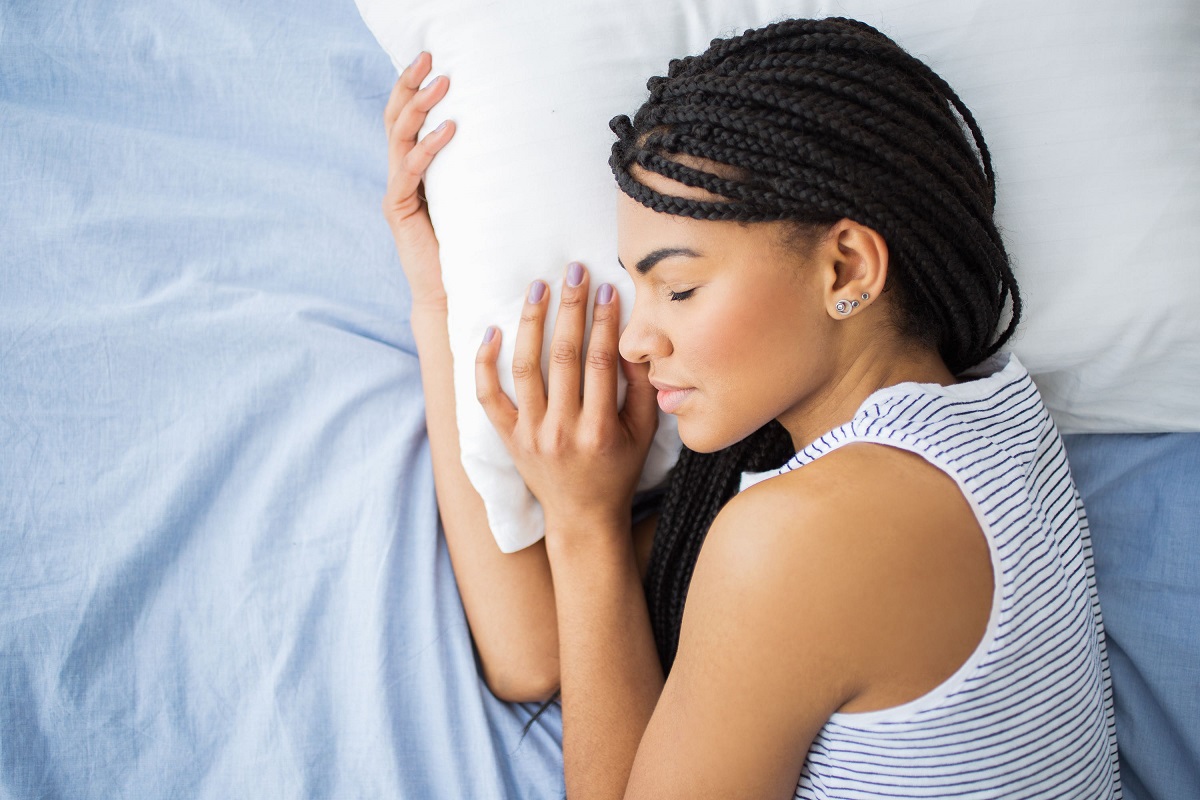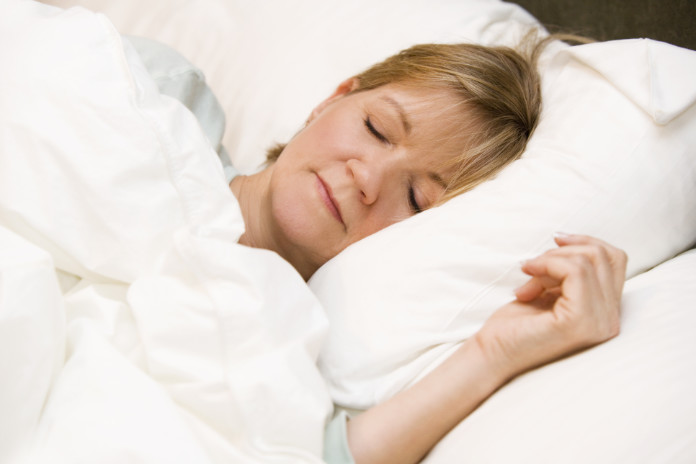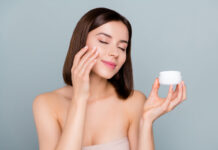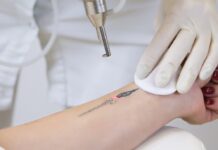We all know how it feels first thing in the morning when you’ve failed to get enough sleep the night before. Grogginess, difficulty concentrating and a craving for caffeine or comfort food are all typical symptoms – and they can last well beyond midday. Looking in the mirror only confirms our exhausted state, but according to a new study, the way lack of sleep affects your skin varies.
YourGoodSkin conducted a recent survey of 2,000 women and found that overall 70% of women say they notice a difference in their looks when they’ve not had a good night’s sleep.
More than half (56%) said they look ‘pale or washed out’; a third reported puffy looking skin; 20% said they are more prone to spots; and 10% said their skin feels more sensitive.
The survey also found that the average woman gets just six and a half hours sleep per night, compared with the recommended seven to eight hours, with a fifth of those questioned getting five hours a night or less.
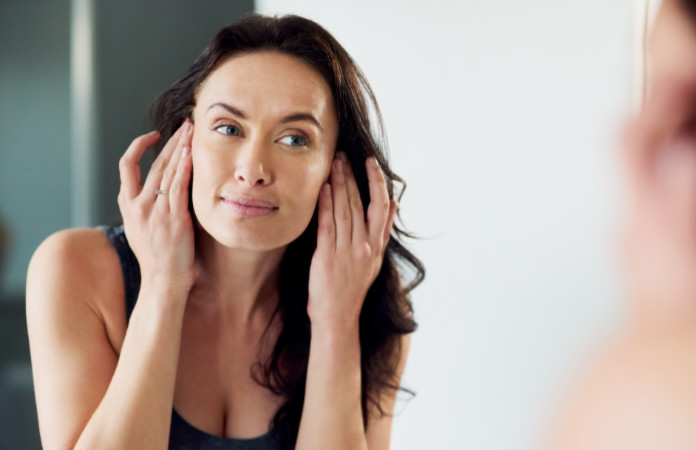
How does lack of sleep affect skin?
So why does not getting the requisite shut-eye affect not only the way we feel, but also how we look on the outside?
“The idea of getting your so-called ‘beauty sleep’ has been around for centuries. But it’s only recently that we’ve begun to understand why,” says Dr Guy Meadows from The Sleep School.
What happens during sleep?
“Sleep is when our skin cells actively grow and repair themselves in response to the wear and tear of the day.
“Scientific research now confirms that a lack of sleep accelerates the ageing process by reducing the time available for essential skin repair.”
In the same way your body feels tired after a lack of sleep, your skin needs rest, too. This is why it can appear less than perky when you don’t get seven or eight hours.
“Not only do our bodies recharge, our skin does as well,” says clinical facialist Kate Kerr, founder of Kate Kerr London.
“During sleep, we heal, restore and eliminate toxins from the skin. If sleep is compromised, so is the body’s ability to carry out these essential skin functions. The quality and length of sleep you experience every night can have a profound impact on your skin’s overall health.”
What do these repairing processes do?
Different repair processes happen throughout an eight-hour period, which is why a lack of sleep affects skin so badly.
“During the first three hours of sleep, your body will start producing the human growth hormone from the pituitary gland,” Kerr continues. “As we age, this hormone is necessary for the maintenance of youthful and radiant skin. Without this hormone release, skin is not repaired from daily damage and thus induces the ageing process.”
Next, in the middle two hours of sleep, the production of melatonin is increased. “Melatonin is a hormone that is responsible for regulating your circadian rhythm, but also acts as an antioxidant that helps protect the skin from damaging free radicals,” Kerr says.
In the final three hours, called the active REM (rapid eye movement) sleep stage, levels of stress hormone cortisol decrease. “The skin’s temperature also drops to its lowest point, allowing muscles to relax and become immobile, giving skin its deepest recovery of the night,” Kerr says.
So what can you do about it?
First of all, the obvious answer is to get more sleep. That may not always be easy, but even if you can’t eliminate certain factors, there are other ways to improve your ‘sleep hygiene’.
Experts recommend making sure your bedroom is completely dark (or use an eye mask), kept at a cool temperate of 16 to 18 degrees, and free from noise, technology and clutter.
“Making sleep a priority in our lives is essential for maintaining our mental, emotional and physical health. Which includes keeping our skin healthy and balanced,” says Meadows.
“The good news is that this can be achieved by adopting simple habits such as going to bed and getting up at the same time every day.”
This helps to programme your brain and internal body clock to get used to a certain routine, so you’re more likely to fall asleep at the same time each night.
Spend time winding down
“Have a good evening wind-down routine to help prepare the mind and body for a good night’s sleep,” Dr Meadows adds.
The NHS recommends a number of activities to help you wind down at night. A warm (but not hot) bath, gentle stretching or yoga, a guided meditation, and writing a ‘to do’ list so that you get any distractions off your mind.
Reading a book or listening to the radio can also be relaxing, but it’s best to avoid TV for an hour before you go to bed.
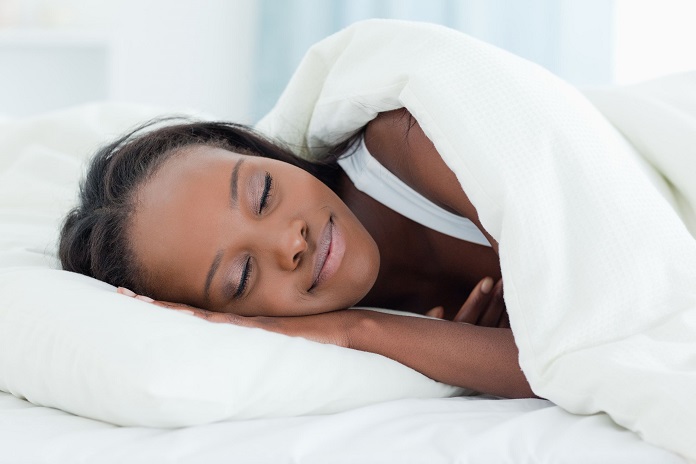
According to Sleep.org, the bright light emitted by a TV or computer screen fools the brain into thinking it’s still daytime and preventing the release of melatonin, the chemical which makes you fall – and stay – asleep.
Skincare that can help
In terms of skincare, Kerr suggests three steps to maximise your chances of waking up looking refreshed.
So there you have it, follow these steps and hopefully you’ll get the sleep you need to look and feel good when morning comes.
“Cleansing your skin before bed is a vital step to remove every last bit of make-up. But also the spoils of the day, such as pollution and natural oils that build up and oxidise on the skin’s surface,” she says.
“Always double cleanse. Start with a gel-based cleanser for oily/normal skin, or a moisturising gentle cleanser for drier skin. Then follow with an acid-based cleanser, which helps to increase the rate at which the cells turn over.”
Neutrogena Hydro Boost Gelée Milk Cleanser with Hyaluronic Acid, Amazon.
She also recommends anti-ageing hero ingredient retinol. “Retinol helps to stimulate a large percentage of the different cells within the skin to behave as fresher, healthier and younger versions of themselves.
The Ordinary Retinol 0.5% in Squalane, Amazon.
“This not only improves collagen and hyaluronic acid production, but also speeds up cell turnover to improve skin function, hydration, and to smooth and brighten.”
Finally, give yourself a mini massage with a serum or facial oil to prevent puffiness.
Try using a Jade Roller & Gua Sha Scraping Tool Set for extra cooling, Amazon.
“This helps to stimulate circulation, which increases oxygen and nutrients, and also encourages the skin to detox by activating lymph drainage.”
You may also be interested in…
This article may include affiliate links to products and services where we may receive a small fee to support the running of this site if you make a purchase or is a sponsored article from one of our select editorial partners providing valuable advice and information to our readers.























































